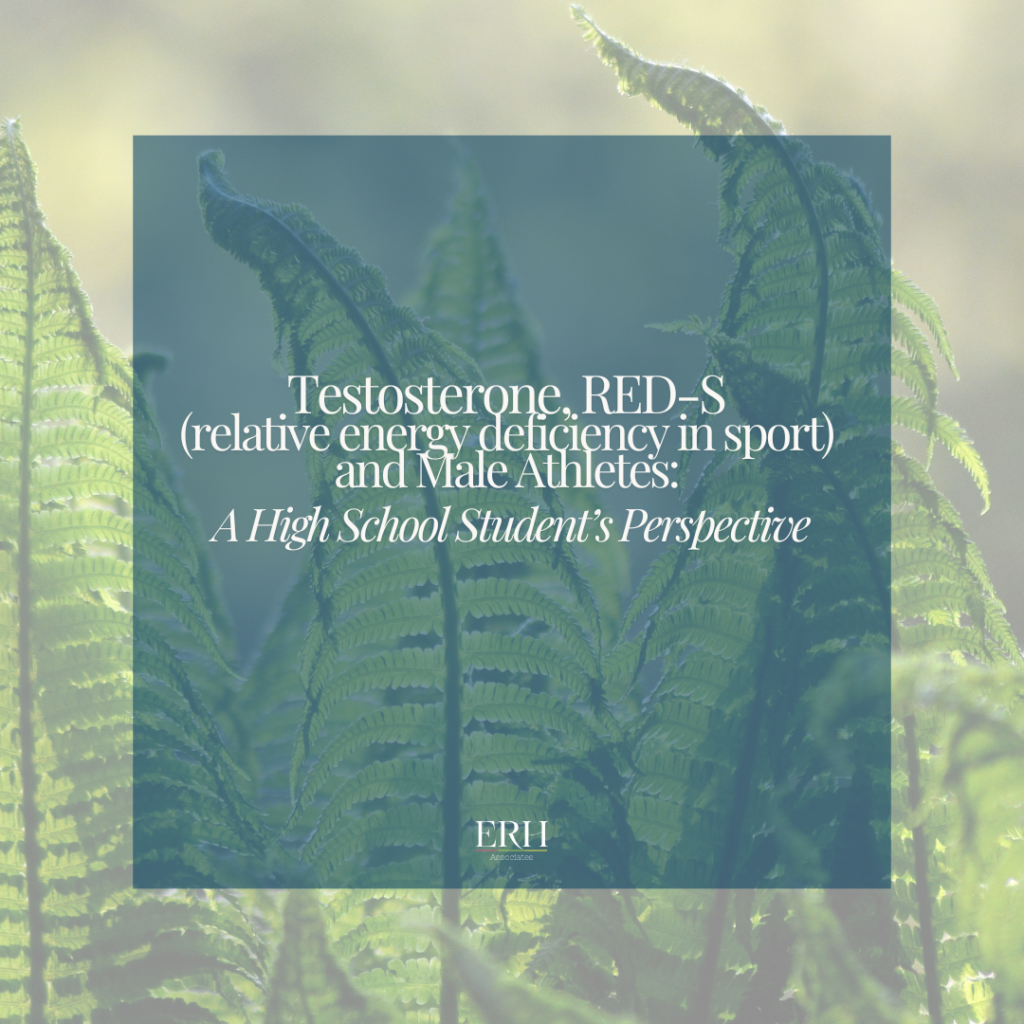In today’s blog, we’re excited to feature a guest contribution from a high school student who is passionate about men’s health and fitness. With growing attention on the importance of nutrition and training for athletes, this article offers a fresh perspective on how teenage male athletes view testosterone, its impact on their performance, and the often-overlooked risks of underfueling and overtraining.
Our savvy young guest writer explores key questions about the pressures facing male athletes, the knowledge gaps around conditions like Relative Energy Deficiency in Sport (RED-S), and how schools and coaches can better educate the next generation on this important topic.
1. What do you think is the biggest misconception among teenagers about testosterone and how it affects athletic performance?
I would say the biggest misconception is that testosterone will ‘fix all of your problems’. Don’t get me wrong, testosterone is absolutely vital for so many aspects of a male’s life, but it is not a solution for everything. Other things such as drinking enough water, getting enough sleep, and eating the right foods in the right amount are often overlooked by teens.
2. How do you think young male athletes view the importance of nutrition and fueling properly before and after workouts? Do you think this is well understood?
I don’t really think it is well understood at all. Most teenage boys get hungry very easily, so after training they will eat insane amounts of food. I myself always eat a huge meal after training. Nutrition is very overlooked though. I can see how RED-S could become an issue for people who may not eat as much. Most teenage boys know about protein and carbs, but that’s really the extent of their knowledge of nutrition. Things like iron, zinc, fiber etc. are not really paid attention to.
3. In your opinion, how aware are young athletes about conditions like RED-S and the impact of low testosterone on overall health and performance?
Most teenage boys certainly know of the impact of low testosterone. Things such as decreased muscle mass, high pitched voice, and underdevelopment of male characteristics in general, are commonly understood by the majority of teenage boys. But it is not really understood in depth. As with RED-S, I myself had never heard of it until a few weeks ago when I spoke to Dr Sasha Nair about testosterone. Although, when I did hear about it, I was instantly intrigued, me being an athlete that trains intensely almost every day, and so being educated on the topic of RED-S would benefit me greatly. I definitely think I will try to educate myself more on this topic in the future.
4. How do you think schools, coaches, or media could better educate male teenagers about the risks of overtraining, under fueling, and hormonal imbalances?
Honestly, I have not really been educated about testosterone that much at school. I have mainly learnt about it from social media, such as youtube and instagram, which i think is the way that most teenage boys learn about it. This is probably not the best way to learn about things such as hormones, knowing that social media is not the most reliable source of information. So really I think even just basic awareness, and teachers (and people in general) talking about it more would make a big difference
My name is Bhakti Rutledge, I am a competitive kickboxer, and I am interested in men’s health because, well, partly because I am a man, but also when I found out about testosterone and its benefits, I realised how important it is. I think every man should care about his testosterone, and understand how beneficial it is for everyday life.
Education about RED-S and related health topics would make a valuable addition to puberty and health programs in schools. By raising awareness about the risks of under fueling, overtraining, and hormonal imbalances, we can better support young athletes in maintaining their overall health and performance. Parents and students can play a key role by providing feedback to schools and coaches to advocate for the inclusion of these crucial topics in health and physical education curricula.

Comments +